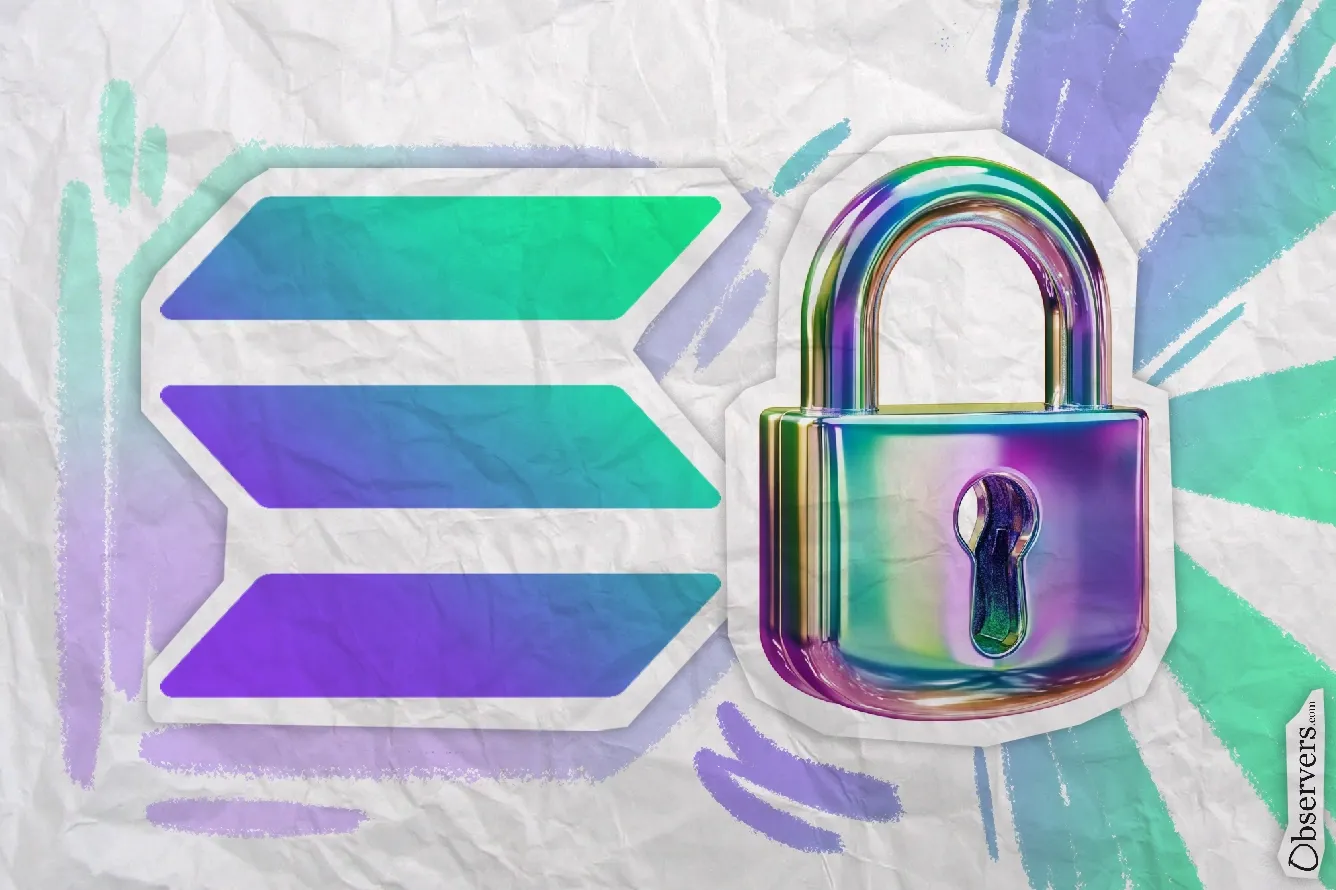Solana Goes Private, Launches Confidential Balance
0
0

Solana just launched Confidential Balances, a new privacy-focused token standard that uses zero-knowledge (ZK) tech to encrypt balances and transfers, while still keeping Solana’s signature speed intact. At a glance, it is a set of privacy extensions built on top of the existing token framework, designed to give projects more control over how visible their token data is.
Think of it like turning on privacy settings for tokens. With these new tools, issuers and apps can choose how much information is shared—whether everything is public, only visible to certain parties, or kept fully private. Transfers can be set to different modes: disabled, whitelisted, required, or opt-in privacy, depending on what the project needs.
But what really sets this apart is that it is built with compliance in mind. Issuers can assign auditors, typically in regulated jurisdictions, who have the ability to decrypt transaction data if needed. That means KYC and AML checks can still happen when required, without exposing everything by default.
Behind the scenes, a mix of cryptographic tools is doing the heavy lifting. Homomorphic encryption makes it possible to perform operations on encrypted data, while AES (Advanced Encryption Standard) ensures that account balances and transfers stay hidden from everyone except authorized viewers. Additionally, zero-knowledge proofs make sure transactions are valid, without showing the actual amounts.
There is a catch, though—Confidential Balances are not something you can just turn on for existing tokens. Projects need to mint new tokens specifically built with these features. There is no backward compatibility.
The first real use case is already live: AUSD, a stablecoin on Solana, now supports confidential transfers. It is a pretty big milestone—not just for Solana, but for DeFi as a whole. It shows that meaningful privacy and real-world compliance can actually coexist.
Another area where privacy could have a big impact is turning real-world assets, like real estate, government bonds, and other traditional financial products, into private digital tokens. A key challenge in this area has been making sure privacy and regulatory compliance can both be maintained.
As privacy becomes a hotter topic in crypto, it is starting to feel outdated that anyone can see your wallet balance or transaction history. Networks are starting to rethink that, and Solana’s new standard is one of the first concrete steps toward solving it.
Ethereum is also exploring similar ideas. Not long ago, Vitalik Buterin shared a rough roadmap that talked about building privacy directly into the network. He suggested wallets should support shielded balances by default and include a “send from shielded balance” option to help users protect their privacy. It is clear that the conversation around privacy is not just happening on the sidelines anymore—it is becoming a core part of how major chains are thinking about the future.
At this point, it is less about choosing between privacy and compliance and more about finding ways to make both work together. If DeFi is going to grow up and go mainstream, it is going to need both.
0
0
 Manage all your crypto, NFT and DeFi from one place
Manage all your crypto, NFT and DeFi from one placeSecurely connect the portfolio you’re using to start.





